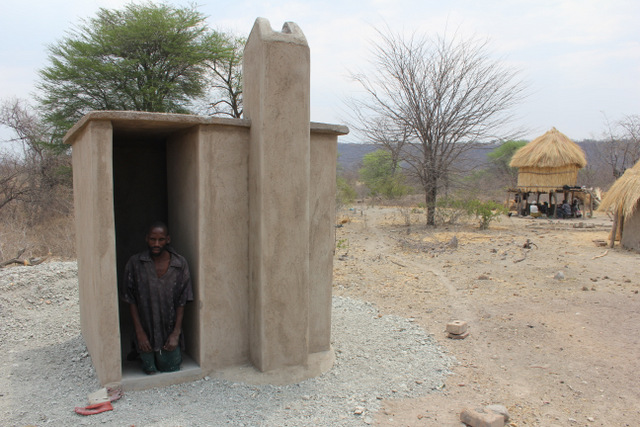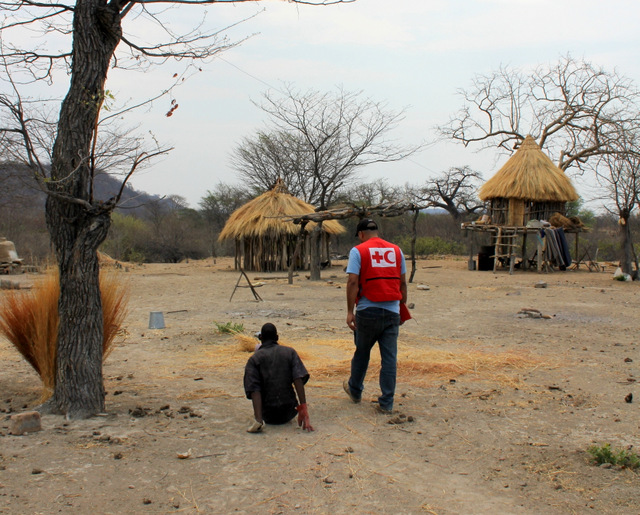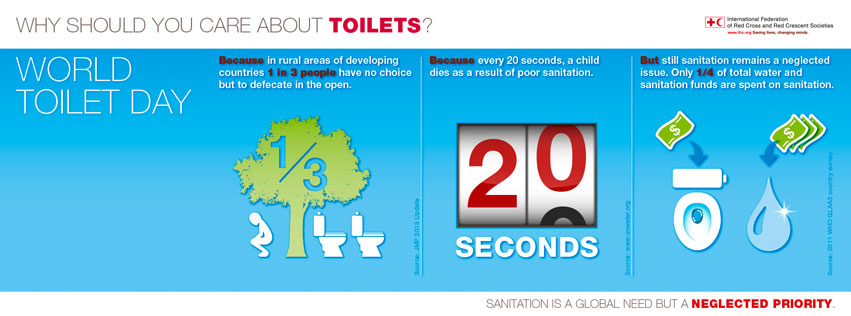November 19th is World Toilet Day.
Worldwide, 2.5 billion people do not have access to a clean and safe toilet.
Tuesday Mwimba, 33, lost the use of his legs after a childhood bout with polio. He walks using his hands, often gloved to protect him from the hot tarred road he takes to the market several times a week. Living in the Binga District of Zimbabwe, a rural area in the northwestern part of the country, life looks much different when lived without the benefits of legs. There are dangers that Mwimba constantly faces that close to the ground.
Until recently, even going to the toilet was dangerous. Snakes and other animals were always close during nightly outings in the Zimbabwean bush. With the support of the American Red Cross, however, Mwimba now has his own toilet.
“I feel very safe now,” Mwimba said. “I suffered a lot over the years, but now I’m safe.”

For many people, having a toilet is an afterthought, one of the easy-to-take-for-granted amenities of living in the modern world. But for 40% of the world’s population that lives without sanitation, having a toilet is a luxury, and one that can often make the difference between life and death.
In the past year, 1.5 million kids under five died because of diarrhea and other waterborne diseases and causes linked to a lack of sanitation. Worldwide, more than one billion people defecate in the open, leading to increased disease outbreak, unsafe drinking water and unhygienic living conditions.

As part of its Building Resilient African Communities (BRACES) program, the American Red Cross is working with the Zimbabwe Red Cross to implement a water, sanitation and hygiene education and promotion project. It’s just one element of larger disaster reduction efforts in the region.
The new toilets, called Blair Toilets, meet national standards for Zimbabwe and are built with contributions from the families who will use them. Mwimba and his family donated bricks, and the local disaster management committee, trained by the Red Cross and other government officials, helped with construction. It’s just one of more than 60 toilets that are being built in the district, and many more are planned for the coming months.
“Through projects like BRACES, the Red Cross has been able to expand our presence and impact in Binga District,” said Brennan Banks, the American Red Cross Regional Disaster Management Advisor for Africa. “Our next phase includes ensuring homes have bathing shelters, hand washing stations, dish drying racks and rubbish pits. They sound like little things, but they make a big difference.”
For more information on sanitation efforts in Africa or in the aftermath of Typhoon Haiyan, visit ifrc.org/watsan.


